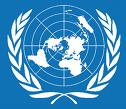The War on Libya is at a Dangerous Crossroads
What will NATO find next in UNSC Resolution 1973?

As the war in Libya is intensifying and NATO is still far from achieving its declared aims, the Alliance is looking for new tricks in order to widen the scope of operations and attract new fresh forces.
On Wednesday, NATO defense ministers held a meeting in Brussels to discuss the course of the current almost three-month-long operation and to exert more pressure on NATO members prodding them to join more aggressively in the campaign. Although the meeting was held behind closed doors, there was little indication that the five NATO members that were specifically addressed – Germany, Poland, the Netherlands, Spain and Turkey — were willing to commit themselves more deeply.
By now, NATO has already conducted more than 10,000 airstrikes against various targets in Libya, with the most devastating ones being inflicted during the last week. And what is becoming more and more obvious is the fact that the real target – whatever NATO officials might be saying about not targeting individuals – is the Libyan leader Colonel Muammar Gaddafi.
This was acknowledged in an interview to CNN by a high-ranking NATO official who spoke on condition of anonymity. The official argued that since Gaddafi is the commander-in-chief, he is part of the command and control structure of Libyan armed forces, and that makes him a legitimate target.
Now, the logic seems to be at least weird. The UN Security Council Resolution #1973 which gave a “green light” for NATO military operations against the Gaddafi regime, states clearly that the purpose of the operation is to establish a no-fly zone over Libya and to protect the civilian population.
The no-fly zone was established within a few days after the operation began. This did not seem to satisfy NATO, and apart from the Libyan air force and its infrastructure, they started attacking other military facilities claiming that they were protecting the civilian population. But until now, no one has really calculated who and what has caused more casualties among Libyan civilians – the Gaddafi regime, the rebels or the NATO airstrikes.
Then, although Resolution #1973 directly forbids it, there have been reports that NATO ground troops are already in Libya. At least one fact has never been concealed – that is the use of combat helicopters which is only one step from a full-scale ground operation.
With all the massive NATO support, the rebels did not seem fit or willing (or, most likely, both) to launch a decisive offensive against Gaddafi forces. The whole burden of the operation (of which, as the Brussels meeting shows, NATO is becoming more and more fatigued) was to be borne by the Alliance. But the Gaddafi regime, although weakened…is still holding on to its last resort – the capital Tripoli.
If Gaddafi forces succeed in keeping hold of Tripoli for some more time, won’t it be logical from NATO’s point of view to declare ALL people living in the capital militants and therefore legitimate targets for carpet bombings? What will come next is even too dangerous to imagine.
But in any case, what the whole situation proves is only one fact – that is the complete impotence of NATO and its total incapacity to achieve its declared aims. Some of the NATO members (for example, Germany and all others specifically addressed at the Brussels meeting) seem to have realized it three months ago when the operation was only beginning. And Germany is still rebuffing all attempts to get it involved in the operation. “Germany sticks to its position: No military engagement,” said Deputy Defense Minister Christian Schmidt.
When the same feeling will dawn upon other NATO members eager to pursue their war-mongering policy until the complete elimination of the Libyan leadership and complete devastation of the country remains unclear.
Stop NATO e-mail list home page with archives and search engine:
http://groups.yahoo.com/group/stopnato/messages
Stop NATO website and articles:
http://rickrozoff.wordpress.com

